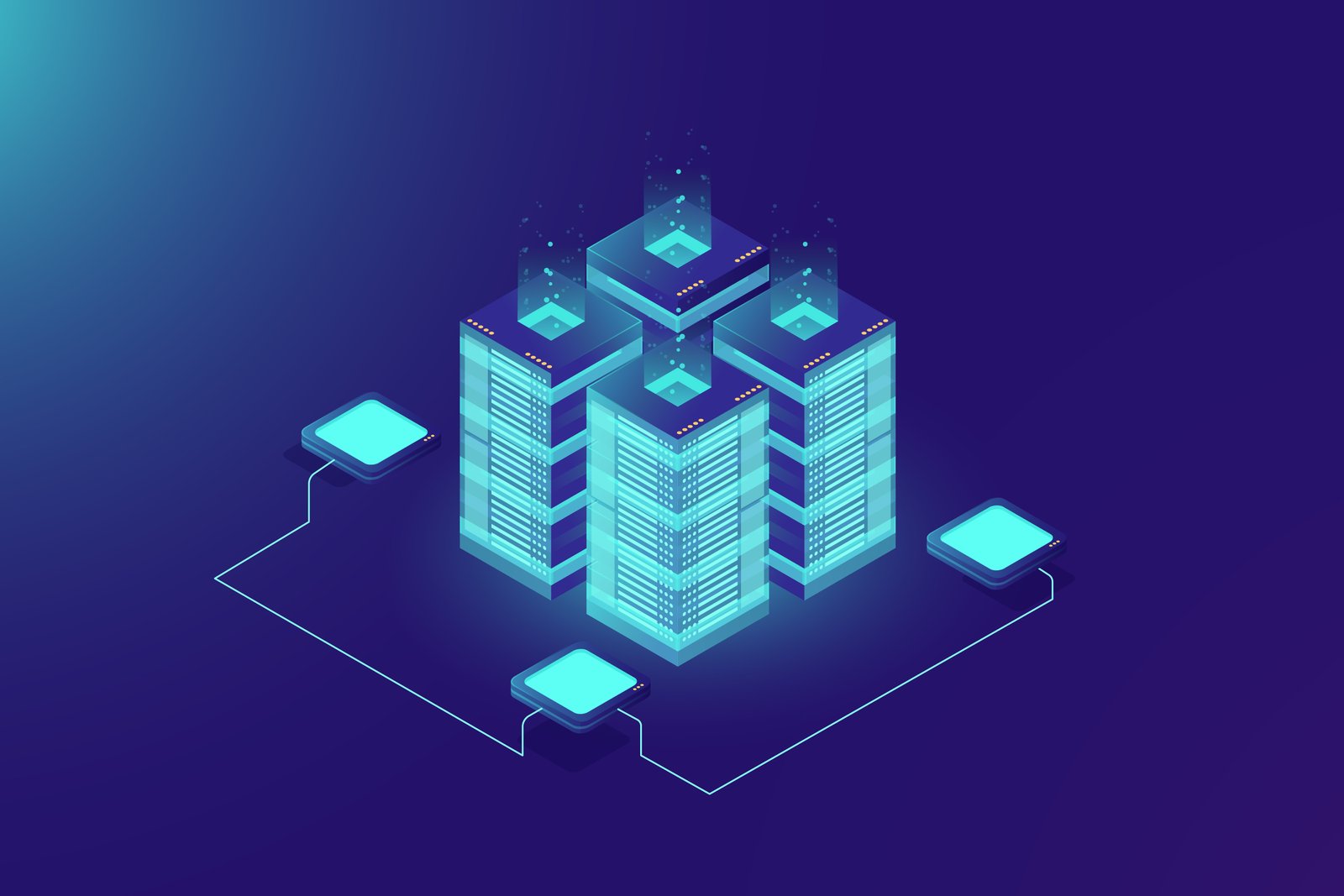AI in Cybersecurity: Enhancing Protection in the Digital Age
In an era where digital threats are evolving at an unprecedented pace, traditional cybersecurity measures are no longer sufficient. Enter Artificial Intelligence (AI) — a transformative technology that is revolutionizing the way we protect our digital assets. At Open lluna, we harness the power of AI to deliver cutting-edge cybersecurity solutions that stay ahead of emerging threats, ensuring robust protection for businesses worldwide.
Introduction
As businesses increasingly rely on digital infrastructure, the importance of robust cybersecurity cannot be overstated. Cyberattacks are becoming more sophisticated, targeting sensitive data, disrupting operations, and damaging reputations. To combat these threats effectively, organizations are turning to Artificial Intelligence (AI) — a technology that offers advanced capabilities to detect, prevent, and respond to cyber threats in real-time.
At Open lluna, we leverage AI to provide comprehensive cybersecurity solutions that not only protect your business but also adapt to the ever-changing threat landscape. This blog explores how AI is revolutionizing cybersecurity, the benefits it brings, the challenges it presents, and the future it holds.
The Growing Cybersecurity Threat Landscape
Cyber threats have evolved significantly over the past decade. From simple viruses and malware to complex ransomware attacks and state-sponsored hacking, the nature and scale of cyber threats are expanding. Key factors contributing to this growth include:
Increased Connectivity: The proliferation of IoT devices and remote work has expanded the attack surface for cybercriminals.
Sophisticated Attack Techniques: Attackers are employing advanced techniques like AI-driven phishing, zero-day exploits, and polymorphic malware.
Data Proliferation: The massive amount of data generated and stored by businesses provides ample targets for data breaches.
Regulatory Pressures: Stricter data protection regulations require businesses to implement more robust security measures.
In this dynamic environment, traditional cybersecurity approaches are often reactive and insufficient. This is where AI steps in, offering proactive and intelligent solutions to safeguard digital assets.
AI is fundamentally changing the cybersecurity landscape by introducing capabilities that go beyond human limitations. Here’s how AI is making a significant impact:
1. Threat Detection and Prevention
AI excels at identifying patterns and anomalies within vast datasets, enabling it to detect potential threats that might go unnoticed by traditional systems.
Machine Learning Models: These models analyze historical data to recognize and predict malicious activities.
Real-Time Monitoring: AI-powered systems continuously monitor network traffic, identifying suspicious behavior instantly.
Signature-less Detection: Unlike traditional methods that rely on known signatures, AI can identify zero-day threats based on behavior patterns.
2. Automated Incident Response
Responding to cyber incidents swiftly is crucial to minimize damage. AI automates this process, ensuring rapid and effective responses.
Automated Playbooks: AI systems can execute predefined response strategies without human intervention.
Incident Prioritization: AI assesses the severity of threats, allowing security teams to focus on the most critical issues first.
Remediation Actions: AI can isolate affected systems, block malicious IPs, and initiate recovery processes autonomously.
3. Behavioral Analytics
Understanding user behavior is key to identifying insider threats and compromised accounts. AI analyzes behavioral data to spot deviations that indicate potential security breaches.
User and Entity Behavior Analytics (UEBA): AI models baseline normal behavior and detect anomalies in user activities.
Predictive Analytics: AI anticipates potential threats by analyzing behavioral trends and forecasting future attack vectors.
4. Vulnerability Management
AI enhances the process of identifying and managing vulnerabilities within an organization’s infrastructure.
Automated Scanning: AI-powered tools conduct continuous vulnerability assessments, identifying weaknesses in real-time.
Prioritization: AI evaluates the risk associated with each vulnerability, helping organizations prioritize remediation efforts effectively.
Patch Management: AI can automate the deployment of patches, ensuring timely protection against known vulnerabilities.
Benefits of AI-Driven Cybersecurity
Implementing AI in cybersecurity offers numerous advantages:
Enhanced Accuracy: AI reduces false positives and negatives, ensuring more accurate threat detection.
Scalability: AI systems can handle large volumes of data and adapt to growing business needs without significant additional costs.
Speed: AI processes and analyzes data at unprecedented speeds, enabling real-time threat detection and response.
Proactive Defense: AI’s predictive capabilities allow organizations to anticipate and mitigate threats before they materialize.
Resource Optimization: Automation of routine tasks frees up security teams to focus on strategic initiatives and complex threat analysis.
Challenges and Considerations
While AI offers substantial benefits, it also presents certain challenges that organizations must address:
Data Quality and Quantity: AI models require large, high-quality datasets to function effectively. Poor data can lead to inaccurate predictions.
Integration with Existing Systems: Incorporating AI into existing cybersecurity frameworks can be complex and requires careful planning.
Skill Gap: Implementing and managing AI-driven solutions necessitates specialized skills that may be scarce.
Ethical Concerns: The use of AI raises ethical issues, including privacy concerns and the potential for biased decision-making.
Adversarial AI: Cybercriminals can exploit AI vulnerabilities, creating sophisticated attacks that deceive AI systems.
Addressing these challenges involves a strategic approach, including investing in data management, fostering continuous learning, and implementing robust ethical guidelines.
Future Outlook: The Role of AI in Cybersecurity
The integration of AI in cybersecurity is poised to deepen, driven by ongoing advancements and the increasing complexity of cyber threats. Key trends shaping the future include:
AI-Driven Threat Intelligence: Enhanced AI capabilities will enable more comprehensive threat intelligence, providing deeper insights into attacker behaviors and strategies.
Adaptive Security Systems: AI will facilitate the development of adaptive security systems that evolve in response to new threats dynamically.
Collaboration Between AI and Human Experts: The synergy between AI and human intelligence will lead to more effective cybersecurity strategies, combining the strengths of both.
AI in IoT Security: As IoT devices proliferate, AI will play a crucial role in securing these endpoints, ensuring the integrity of interconnected systems.
Regulatory Integration: AI will assist in ensuring compliance with evolving data protection regulations by automating compliance checks and reporting.
Data Quality and Quantity: AI models require large, high-quality datasets to function effectively. Poor data can lead to inaccurate predictions.
Integration with Existing Systems: Incorporating AI into existing cybersecurity frameworks can be complex and requires careful planning.
Skill Gap: Implementing and managing AI-driven solutions necessitates specialized skills that may be scarce.
Ethical Concerns: The use of AI raises ethical issues, including privacy concerns and the potential for biased decision-making.
Adversarial AI: Cybercriminals can exploit AI vulnerabilities, creating sophisticated attacks that deceive AI systems.
Addressing these challenges involves a strategic approach, including investing in data management, fostering continuous learning, and implementing robust ethical guidelines.
Open lluna’s AI-Powered Cybersecurity Solutions
At Open lluna, we are committed to leveraging AI to deliver state-of-the-art cybersecurity solutions tailored to meet the unique needs of your business. Our offerings include:
1. Intelligent Threat Detection
Utilizing advanced machine learning algorithms, our threat detection systems identify and neutralize threats in real-time, providing unparalleled protection against both known and emerging cyber threats.
2. Automated Incident Response
Our AI-driven incident response tools ensure swift action against cyberattacks, minimizing potential damage and reducing recovery time through automated remediation processes.
3. Behavioral Analytics and UEBA
By analyzing user behavior patterns, our solutions detect anomalies that may indicate insider threats or compromised accounts, enhancing your organization’s ability to prevent and respond to such incidents.
4. Comprehensive Vulnerability Management
We offer AI-powered vulnerability scanning and management, prioritizing vulnerabilities based on risk and automating patch deployment to keep your systems secure and up-to-date.
5. Customized Security Solutions
Understanding that every business is unique, we provide tailored cybersecurity strategies that integrate seamlessly with your existing infrastructure, ensuring maximum protection and operational efficiency.
AI-Driven Threat Intelligence: Enhanced AI capabilities will enable more comprehensive threat intelligence, providing deeper insights into attacker behaviors and strategies.
Adaptive Security Systems: AI will facilitate the development of adaptive security systems that evolve in response to new threats dynamically.
Collaboration Between AI and Human Experts: The synergy between AI and human intelligence will lead to more effective cybersecurity strategies, combining the strengths of both.
AI in IoT Security: As IoT devices proliferate, AI will play a crucial role in securing these endpoints, ensuring the integrity of interconnected systems.
Regulatory Integration: AI will assist in ensuring compliance with evolving data protection regulations by automating compliance checks and reporting.
Data Quality and Quantity: AI models require large, high-quality datasets to function effectively. Poor data can lead to inaccurate predictions.
Integration with Existing Systems: Incorporating AI into existing cybersecurity frameworks can be complex and requires careful planning.
Skill Gap: Implementing and managing AI-driven solutions necessitates specialized skills that may be scarce.
Ethical Concerns: The use of AI raises ethical issues, including privacy concerns and the potential for biased decision-making.
Adversarial AI: Cybercriminals can exploit AI vulnerabilities, creating sophisticated attacks that deceive AI systems.
Addressing these challenges involves a strategic approach, including investing in data management, fostering continuous learning, and implementing robust ethical guidelines.
Conclusion
The integration of Artificial Intelligence in cybersecurity is not just a trend but a necessity in today’s digital landscape. AI offers the agility, intelligence, and scalability required to combat sophisticated cyber threats effectively. At Open lluna, we are at the forefront of this technological revolution, providing AI-driven cybersecurity solutions that safeguard your business and empower you to thrive in a secure digital environment.
Embrace the future of cybersecurity with Open lluna — where innovation meets protection.
1. Intelligent Threat Detection
Utilizing advanced machine learning algorithms, our threat detection systems identify and neutralize threats in real-time, providing unparalleled protection against both known and emerging cyber threats.
2. Automated Incident Response
Our AI-driven incident response tools ensure swift action against cyberattacks, minimizing potential damage and reducing recovery time through automated remediation processes.
3. Behavioral Analytics and UEBA
By analyzing user behavior patterns, our solutions detect anomalies that may indicate insider threats or compromised accounts, enhancing your organization’s ability to prevent and respond to such incidents.
4. Comprehensive Vulnerability Management
We offer AI-powered vulnerability scanning and management, prioritizing vulnerabilities based on risk and automating patch deployment to keep your systems secure and up-to-date.
5. Customized Security Solutions
Understanding that every business is unique, we provide tailored cybersecurity strategies that integrate seamlessly with your existing infrastructure, ensuring maximum protection and operational efficiency.
AI-Driven Threat Intelligence: Enhanced AI capabilities will enable more comprehensive threat intelligence, providing deeper insights into attacker behaviors and strategies.
Adaptive Security Systems: AI will facilitate the development of adaptive security systems that evolve in response to new threats dynamically.
Collaboration Between AI and Human Experts: The synergy between AI and human intelligence will lead to more effective cybersecurity strategies, combining the strengths of both.
AI in IoT Security: As IoT devices proliferate, AI will play a crucial role in securing these endpoints, ensuring the integrity of interconnected systems.
Regulatory Integration: AI will assist in ensuring compliance with evolving data protection regulations by automating compliance checks and reporting.
Data Quality and Quantity: AI models require large, high-quality datasets to function effectively. Poor data can lead to inaccurate predictions.
Integration with Existing Systems: Incorporating AI into existing cybersecurity frameworks can be complex and requires careful planning.
Skill Gap: Implementing and managing AI-driven solutions necessitates specialized skills that may be scarce.
Ethical Concerns: The use of AI raises ethical issues, including privacy concerns and the potential for biased decision-making.
Adversarial AI: Cybercriminals can exploit AI vulnerabilities, creating sophisticated attacks that deceive AI systems.
Addressing these challenges involves a strategic approach, including investing in data management, fostering continuous learning, and implementing robust ethical guidelines.
Unlock the future of cybersecurity with AI-driven solutions that anticipate and neutralize threats before they strike. 🛡️🤖








